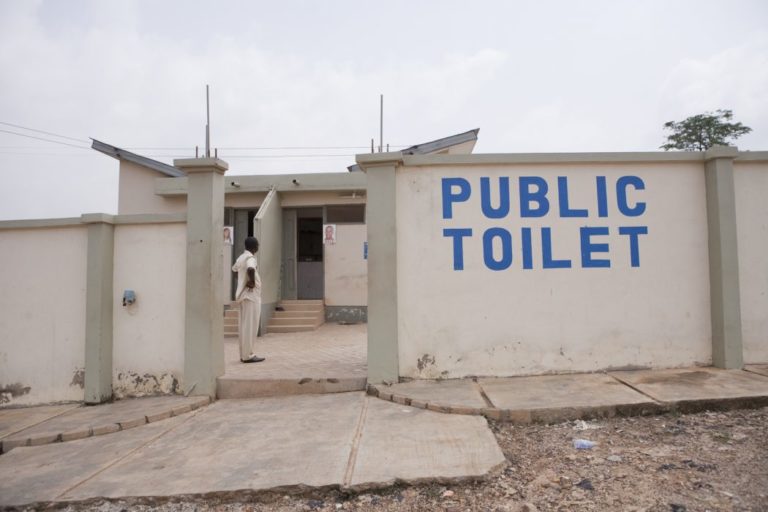As Nigeria joins the world to world commemorate the 2021 World Toilet Day, the United Nations Children Fund (UNICEF) office in Nigeria on Thursday revealed that data available to it indicates that no fewer than 46 million Nigerians lack access to toilets which is key to ending open defecation thereby boosting health and total well-being.
As a result of this anomaly, many people in the affected communities often end up with different preventable ailments which often lead to death.
The UNICEF Chief of Maiduguri Field Office Dr Clement Adams, made this revealation in his presentation at a one-day media dialogue in Maiduguri, on Thursday. He pointed out that the northeastern states of Borno, Adamawa and Yobe, are among the states with high number of people that practice open defecation.
He suggested that stakeholders must review existing mechanisms with a view to improving access to toilets, reduce disease outbreaks and tackle malnutrition in conflict-affected children.
Read Also: Over 1.2M Children Yet To Be Immunised In Nigeria – UNICEF
According to him, ‘Valuing toilets, being the theme of 2021 World Toilet Day is apt. Evidence has shown that access to toilets and water benefit people and nations, and promotes the wellbeing of the workforce and contribute to the reduction of stunting in children. Undoubtedly, ending open defecation helps to protect the dignity of women and girls and reduce the incidences of gender-based violence’.
He confirmed that since 2018, UNICEF has supported north-east states with the construction and rehabilitation of 4,752 and 2,976 toilets, respectively, across IDP camps and communities, and about 200 sites have been supported with hand pumps boreholes, while 126,690 non-food items have been distributed to displaced and vulnerable families.
Additionally, he said that UNICEF has built capacities of state departments and LGAs to deliver safe and sustainable Water Sanitation and Hygiene (WASH) services to communities and Internally Displaced People (IDPs), and also supported Adamawa, Borno and Yobe states to undertake rapid response to cholera outbreaks.
He added that, at a time when the Federal Government intensified effort to make open defecation free through the nationwide Clean Nigeria Campaign, it is important for states adopt a mission mode to become open defecation free by 2025.
He encouraged practical steps towards ending open defecation, thus advocating construction of more toilets and water sources especially among the most vulnerable population IDP camps or host communities.
‘In addition to that, schools, markets and other public places must not be left out even as we promote behavioural change among the people. National and state budgets must reflect the importance of toilets and water sources to the health of children and workforce.
‘We must prioritise investments in physical and human resources and scale up existing programmes targeting expansion of toilet and water services. Evidently, inability to access toilets is costly. It robs children of their health and peace. When people die of cholera complications, children are sadly stripped of parental care and the most basic protection,’ he said.
He assured that UNICEF will continue to work with states and RUWASSA especially in the north-east states, to promote the wellbeing of conflict-affected people and safeguard the rights of their children to life and good health.
He also promised that UNICEF will continue to advocate for one more toilet and borehole across north-east states until every IDP camp, home, school and market have adequate sanitation and hygiene and facilities that safeguard the wellbeing of all.
AFRICA DAILY NEWS, NEW YORK










